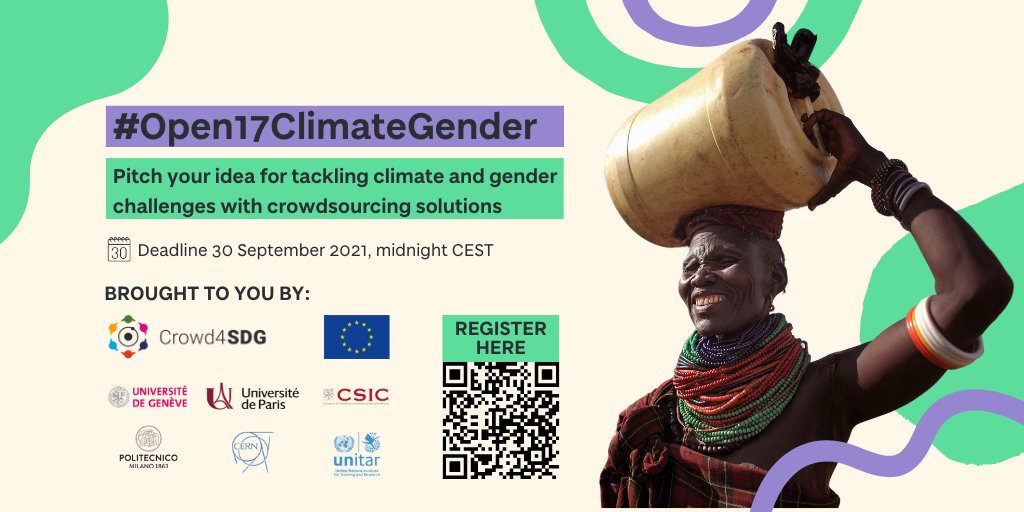
Crowd4SDG Open Call: #Open17ClimateGender
06/AUG/2021
Climate change is a global problem, but it does not affect everyone equally. According to the United Nations, the most impoverished populations are the most affected by this environmental, economic, and social emergency, especially women. Thus, understanding the connections between gender inequality and the climate emergency is a fundamental tool to reverse it.
From this point of view, Crowd4SDG, an EU-funded research project in which the IIIA-CSIC participates, has opened the call #Open17ClimateGender that invites young people between 16 and 26 years of age to present an idea or citizen science project that addresses solutions for climate change from a gender equality perspective. The deadline is September 30, 2021, at midnight (CEST)
The #Open17ClimateGender challenge invites you to pitch a project that tackles climate and gender challenges using crowdsourcing solutions, in line with one of the challenge themes below:
- Measuring the differentiated impacts of disasters on women and men.
- Assessing women's vulnerability to climate change effects on natural resources.
- Improving data on women's participation in environmental management.
- Measuring the health of ecosystems systematically with women's contribution.
In addition, if you have a great idea or a project you're already working on that addresses the twin issues, it can pitch this, too.
Individuals or teams can propose projects at the scale of a community, a region, a country, or the entire world. Applications must be in English, and participants should have a good command of written and spoken English, to benefit fully from the online coaching.
If you are interested in doing your bit, you can find more information in the following links:
- Key aspects of the call for participants
- For more details and for registering to the call for participants
- For more information on the EU project organizing this call
Our social media:
Crowd4SDG studies how citizen science can be helpful to monitor the United Nations Sustainable Development Goals (SDGs), especially those on climate change, and proposes how to improve citizen science activities by providing them with better collective decision-making tools.
Requisits:
Salary:
Duration:
Workday:
Workplace:
Start date:
Closing date: